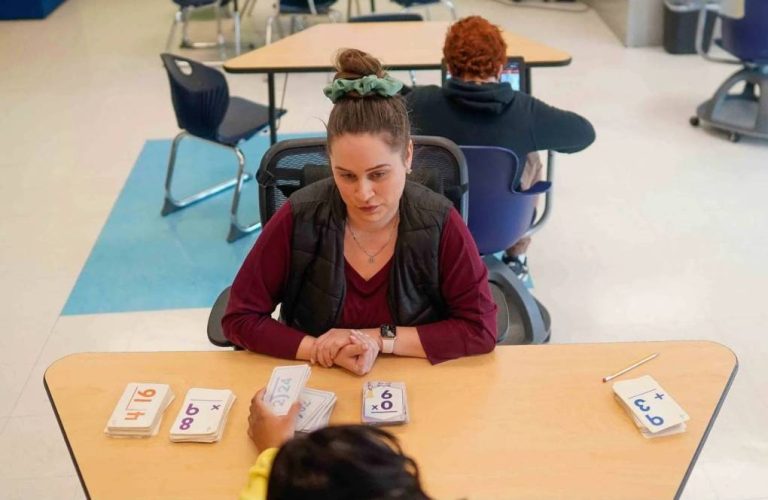

Valuable for marriage valuable for essay composing
I’m studying Daniel Buck’s excellent “What is Mistaken with Our Educational facilities” and want to share an notion that’s definitely beneficial. In chapter 3, Buck discusses the electric power of supplemental texts in reading through.
This is a little something my colleagues and I refer to as ’embedded nonfiction.” Erica Woolway, Colleen Driggs and I have a chapter on it in Reading Reconsidered and we use it thoroughly in designing our curriculum by that identify. The concept is that including shorter nonfiction texts all over a major textual content can infuse it with just the right history expertise at just the suitable time so that college students learn a lot more and find the e-book extra interesting–more available and with much a lot more wealthy and fascinating connections.
Buck provides the instance of looking through an report on surveillance of citizens in present day China, say, though reading The Giver or an report on narcissistic personalities although looking at The Magician’s Nephew. Or you might go through an posting on how subjective and manipulable memory is when examining Animal Farm as Emily DiMatteo does in this fantastic online video illustration.
Buck’s discussion of the topic–and how enjoyable the “need for knowledge” brings the e-book to lifestyle for readers–is exceptional. But then he goes on to a new topic–embedding supplemental texts in prolonged producing prompts.
“The exact need to have for expertise applies to writing… With Romeo and Juliet, my ultimate essay tasks them with answering the straightforward issue: is this a adore story? Prior to asking them to do that, even so, we examine many passages and theories of love so they needn’t rely on what ever philosophy of adore they materialize to have picked up from popular media. I examine with them the famous wedding passage from Corinthians (“Love is affected person love is kind…”) excerpts from Lewis describing how love simply cannot basically be an emotion but calls for motion a scientific explanation of the substances that go by means of our brain as we slide in appreciate and a short studying about the distinct words and phrases the historical Greeks applied for love… [phila, eros, storge and so on]. Only getting browse these parts do I come to feel snug inquiring my pupils to respond to [the question] in lengthy type.”
Examining that passage was a bit of an epiphany for me, actually. First it invoked a short memory of my least preferred class in college or university: Philosophy. We were continually questioned to produce on wide and seemingly intractable questions about which I had a handful of general notions and a great deal of uncertainty. What I didn’t have was the vocabulary to lock down the imprecise beginnings of ideas I experienced in particular principles I could come back to or other people’s previous reflections that narrowed the concerns to workable points. It was broad, sweeping, and each and every issue felt like a get together trick. I hated it and never ever took a different system or go through a different e-book in philosophy for the relaxation of my lifetime.
What do you assume? What is the character of freedom? Respond to from your soul. Very little you say is incorrect.
You could simply call this mental “freedom” I guess–that’s what we normally call it with pupils, the independence to compose about regardless of what you want–but in fact it’s considerably a lot less freeing than staying asked to discuss a little something you have the specialized conditions and foundational strategies to make sense of.
Declaring: in this article are some phrases that will be handy to you. Right here are some essential concepts from heritage you can draw on as you compose is a bit like memorizing math points. And I imply that in a fantastic way-in an, it’s central to important pondering but numerous educators overlook it and misunderstand this sort of way.
If you are automatic with your math information it boosts your critical imagining and the depth of your evaluation. Factual fluency and deep being familiar with go together. If (and only if) you are computerized with your math facts, you can consider about less difficult techniques to clear up a problem or comprehend the similarities of two troubles. But if you are just striving to function it by means of on the most standard algorithmic degree your doing the job memory is caught on the extra mundane jobs.
So too in composing. If you have to frame and title of a core strategy you search for to explore it’s exhausting, not that pleasant, and you shell out your time on mundane responsibilities not richer deeper investigation. If you can rapidly draw on Lewis’s conception of motion or the Greeks’ parsing of distinctive names, you get beyond the area significantly more promptly.
In any case, in our Reading through Reconsidered curriculum we generally ask–what else do college students will need to know to get the most out of reading this e-book? And now, many thanks to Daniel Buck, we will currently being asking–what else do college students will need to know to get the most our of the practical experience of writing this essay?







